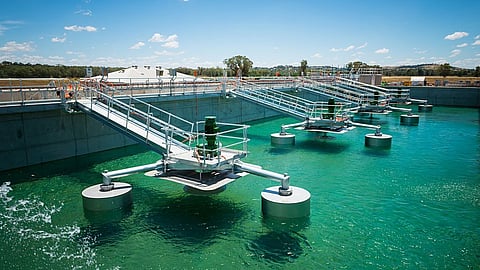Enhancing Wastewater Treatment: The Role of Automation in Boosting Plant Efficiency
Introduction
Wastewater treatment plays a critical role in maintaining environmental health by removing pollutants and contaminants from water before it is released back into natural ecosystems. In recent years, the integration of automation technologies has revolutionized the efficiency and effectiveness of wastewater treatment plants. This blog explores the various ways in which automation contributes to accelerating plant efficiency and improving overall performance.
Real-Time Monitoring and Control: One of the key advantages of automation in wastewater treatment is the ability to monitor and control processes in real time. Automated sensors and monitoring systems constantly collect data on various parameters such as pH levels, chemical concentrations, and flow rates. This real-time information allows operators to make swift adjustments, optimizing treatment processes and preventing issues before they escalate.
Precision in Chemical Dosage: Automation enables precise control over chemical dosing, a crucial aspect of wastewater treatment. By automating the injection of coagulants, flocculants, and other chemicals, plants can achieve optimal dosages, ensuring efficient removal of contaminants. This not only enhances treatment effectiveness, but also reduces chemical usage, resulting in cost savings and a more sustainable approach.
Predictive Maintenance: Automation systems often incorporate predictive maintenance tools, which use data analytics and machine learning algorithms to anticipate equipment failures before they occur. By identifying potential issues early on, plant operators can schedule maintenance activities strategically, minimizing downtime and preventing unexpected breakdowns. This proactive approach enhances overall plant reliability and efficiency.
Energy Management: Wastewater treatment plants are energy-intensive facilities. Automation helps optimize energy consumption by regulating equipment operation based on demand. For example, pumps and aeration systems can be automatically adjusted to match the current treatment load, ensuring energy efficiency without compromising treatment quality. This not only reduces operational costs, but also aligns with sustainable energy practices.
Data-Driven Decision-Making: Automation generates vast amounts of data, and leveraging this data for informed decision-making is a significant benefit. Advanced analytics tools can analyze historical and real-time data to identify patterns, trends, and areas for improvement. This data-driven approach enables plant operators to make informed decisions, optimize processes, and continually enhance overall efficiency.
Improved Compliance and Reporting: Stringent environmental regulations require wastewater treatment plants to meet specific standards. Automation systems facilitate continuous monitoring and documentation of treatment processes, making it easier to demonstrate compliance with regulatory requirements. Automated reporting features streamline the submission of necessary documentation, reducing the administrative burden on plant operators.
Conclusion
Automation has become a cornerstone in the evolution of wastewater treatment, offering unparalleled benefits in terms of efficiency, cost-effectiveness, and environmental sustainability. By embracing automation technologies, wastewater treatment plants can not only meet current challenges, but also position themselves for future advancements in water treatment and resource management. The integration of automation is a crucial step toward achieving a cleaner, healthier environment for generations to come.
Participating in Water Today’s Water Expo will give a platform to understand and witness live demos, and presentations and give a better perspective and clarity about the impact of automation and real time monitoring. Visiting the exhibition can be beneficial in meeting current challenges and improve sustainability issues

